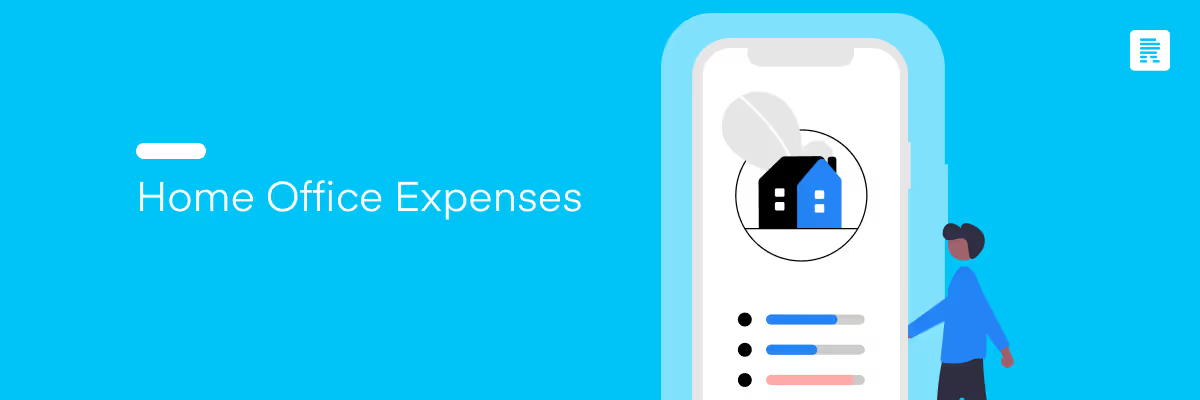Is self-employment tax deductible?
It's not fun to pay taxes, but if you are a freelancer, you are lucky since you can deduct some of your taxes by claiming certain tax deductions. There are exclusive tax breaks for the freelancers that you can take advantage of. Self-employment tax deductions are not rocket science once you understand what expenses are deductible. Check out the following freelancer tax deductions you might qualify for this season. Let’s learn more about the tax write-offs for the self-employed.
Self-employment tax deductions list
Your home, car, insurance, premium health care insurance, retirement savings, and even your education bills could get you a tax break.There are many profitable tax deductions for self-employed professionals who work for themselves. Here are 5 significant sole proprietorship tax deductions to remember.
1. Insurance Expenses

There are many details when we are talking about self-employed health insurance tax deduction. If you are self-employed and pay for your health insurance premiums, you can deduct the insurance costs. You can deduct all of your dental insurance, disability insurance, life insurance costs as well.Suppose you are also providing coverage for your families, like your spouse and your children. In that case, you can deduct the insurances you paid. To understand more, check out the details below.Dental insuranceSelf-employed workers can deduct 100% of their health insurance premiums, including dental and long-term care coverage, for themselves, their spouses, and their dependents.Disability insuranceUnfortunately, self-employed freelancers can’t deduct disability insurance premiums from their taxes. However, they can deduct medical, dental, and long-term care insurance from their taxes.Life insurance/pensionAs an individual who pays life insurance premiums, your expenses are not deductible on your income tax return. If you have a company and employers and you pay life insurance premiums on behalf of your employees, your expenses may be deductible.
2. Home Office Expenses

If you are a self-employed freelancer, your main office is your home even though you work from different co-working spaces or cafes. So this makes your home, your office, and your rent a tax-deductible cost, and you can get a break on the value of your rental or mortgage costs.If you are a self-employed professional, the good news is that you can deduct part of your rent or mortgage. You can also deduct expenses such as your property taxes, maintenance costs, and the cost of utilities.It will help if you start by calculating the percentage of your home's square footage that you use for business-related activities. For example, if your home office takes up 15% of your house's square footage, 15% of your housing expenses for the year may be deductible. Here is the list of deductible costs of your home office.Rent & MortgageBills for utilities (internet and cell phone)SecurityHomeowners insuranceHomeowners association feesGeneral repairs and maintenance
3. Service Expenses

- Daycare, Childcare, or Caregiver Expenses
When you have to put your child into daycare to be free to do your freelance job, the child care expenses are deductible. However, this expense is deductible from your income taxes. Suppose you have children under age 13 or have disabled parents who can't care for themselves. In that case, you are qualified to deduct your childcare or daycare expenses.Travel ExpensesYou can claim business expenses for vehicle insurance, repairs and servicing, fuel, parking, vehicle license fees, train, bus, air, taxi fares, hotel rooms, and meals on overnight business trips.You cannot claim for non-business driving or travel costs, fines, travel between home and work.Dry cleaningEven though you wear your clothes to work, you can't claim your everyday clothing’s dry cleaning. However, you can claim business expenses for uniforms, protective clothing needed for your work, costumes for actors, or entertainers.Moving expensesSuppose you are self-employed and work from your home and you decided to move to a new house which is at least 40 kilometers away. In that case, you can deduct your moving expenses as a self-employed professional. For more details, you have to check the percentages on your government website.
4. Business Expenses

All of the simple expenses which are crucial to run your business are tax-deductible, including training, professional tools, gadgets, legal services, accounting services, subscriptions to business publications.ToolsSuppose you want to deduct tool expenses which you invest because of work. In that case, you should consider that the deduction is limited to your total income as a self-employed professional.TrainingSuppose you get the training to update your professional skills and expertise. In that case, you can deduct your training costs by filing a self-assessment tax return.
Bonus: Social Security Tax Deduction
If you are a self-employed professional, you must declare your earnings to pay your taxes. If you are operating a business, service or a profession by yourself, you should report your earnings for Social Security and you should file a federal tax return. If you are earning more than $400 in a year, you have to report your income. Self-employed professionals pay 12.4 percent Social Security tax on up to $137,700 of your net earnings and they also have to pay 2.9 percent Medicare tax their net income.First, your net earnings from self-employment should be reduced by half the amount of your total Social Security tax. Second, you should be able to deduct half of the Social Security tax on IRS Form 1040.
Self Employment Tax Deductions FAQs
What portion of the self-employment tax is deductible? You can deduct 50% of what you pay in self-employment tax as an income.How to calculate the deductible part of self-employment tax? You can deduct 50% of what you pay in self-employment tax as an income. You can check what items are deductible in our list. Is self-employment tax calculated after deductions? You only pay self-employment tax on net earnings, meaning that you can first subtract any deductions. Does QBI deduction reduce self-employment tax? Your self-employment tax cannot be reduced by claiming the QBI deduction.










